The International Institute for Middle-East and Balkan Studies (IFIMES) in Ljubljana, Slovenia, regularly analyses events in the Middle East and the Balkans. In view of the recent attempts to resolve the name dispute between the Republic of Macedonia and the Republic of Greece IFIMES has prepared an analysis of the current political situation in Macedonia and published a public opinion poll. The most relevant and interesting sections from a comprehensive analysis entitled “Republic of Macedonia 2018:Macedonian citizens of with an optimistic eye on the future”are published below.
After several years of instability and political crisis the new government of the Republic of Macedonia was formed on 31 May 2017. It is comprised of the coalition gathered around the Social Democratic Union of Macedonia (SDSM), the Democratic Union for Integration (DUI-BDI) and the Alliance of Albanians (DR-ADP, UNITETI, NDP). Following a democratic denouement the country has seen a consolidation of democracy.
The local elections held in October 2017 were won by the coalition around SDSM.
The new government became the promoter of positive processes not only in the Republic of Macedonia but also in the whole Western Balkans. The Republic of Macedonia has undertaken visible efforts and activities for its consolidation and accession to EU and NATO membership. The government is aware of the immense importance to build and develop partnership with the citizens – its slogans are “government for the citizens” and “one society for everyone”.
Prime Minister Zoran Zaev and his coalition partners are on the good road to resolve the most burning political issues. Nevertheless, he has also expressed readiness for cooperation with the opposition party VMRO-DPMNE in order to build a better future for the country through the “partnership for Macedonia” and achieve a general consensus on the key issues. This represents a new political culture on the Macedonian political scene in the circumstances when decisions have to be made on the main problems of the Republic of Macedonia and on its future which is primarily related to NATO and EU membership. Unblocking of the negotiations to resolve the name issue with Greece is essential for accelerated accession to NATO and EU. Relations with Bulgaria have been revived with the signing of the historical agreement on good neighbourly relations between Macedonia and Bulgaria, which has been ratified by the Macedonian and Bulgarian parliaments.Negotiations with Greece are also developing in the positive and optimistic direction of finding the possible mutually acceptable solution, while the issue of relations with Albanians has been resolved through the regulation of the use of Albanian language and the languages of ethnic minorities, which also contributes to a better internal integration of the country. Prime Minister Zaev obviously builds the welfare of the Macedonian state and multiethnic society on agreement, negotiations and compromise, which sends a new message to the Western Balkans and creates the atmosphere of trust, respect, communication and mutual understanding, and most importantly, enables compromises that lead to EU and NATO accession. The new European Commission strategy on EU enlargement has given new hopes for Macedonia to soon start negotiations with the EU and unblock the process that was halted in 2006.
Macedonia's NATO membership is of strategic interest for all the countries in the region including Serbia, since it will ensure stability and peace in the region. Greece should also support Macedonia's membership in NATO bearing in mind the strong external and internal pressures in the region for changes in the geopolitical orientation of certain countries in the region which inflict a great responsibility on Greece on behalf of NATO. The national identity of Macedonians cannot be changed or disputed – the state was given its name from its nation and not from the region.
The analysts who are familiar with the process of resolving the name dispute believe that it is possible to achieve a compromise on the name and they claim that the identity of Macedonians cannot be and may not be questioned nor negotiated. The negotiations do not question the identity of the nation but the name of the state that is ready to accept a geographical determiner before its name, which does not require any constitutional changes.
Prime Minister Zaev expressed the will and the clear intention to resolve that issue when he said that the Macedonians are not the only successors of the ancient Macedonian kingdom – as a part of this region they enjoy the cultural heritage together with others. The government of the Republic of Macedonia has adopted the decision to rename the motorway Aleksandar Makedonski into the motorway of Friendship and to change the name of the Skopje Aleksandar Makedonski airport into the Skopje International Airport. This sends a clear and unambiguous signal to Greece. Macedonian Prime Minister Zaev and his Greek counterpart Alexis Tsipras, who have inherited the name dispute, represent an example of politicians who are not burdened with any past encumbrances and who want to ensure a better and more secure future for its nations and countries, and they have both expressed unambiguous readiness to finally resolve the name dispute.
The priority task for the state of Macedonia is the democratic recovery of the society through professional and depoliticized institutions. New Macedonian authorities have zero tolerance to corruption and violation of human rights. The newly adopted state budget ensures financial stabilisation. A substantial increase in GDP is anticipated. A public debate has been organised in order to implement the justice reform. Being aware of its immense importance for the country's recovery and promotion the government has developed cooperation with the diaspora which had been neglected and politically abused in the past years . Macedonia is a small country and as such it is well aware that it can only function if it has good friends – therefore it is willing to build and develop friendly relations with all five of its neighbouring states. In view of its special geographical position huge efforts have been invested in becoming the 30th NATO member state. Bulgarian presidency of the Council of the EU in the first half of 2018 has contributed a further positive impulse to all these efforts.
The IFIMES International Institute believes that the EU's support to the democratic politicians in the Western Balkans is of key importance to resolve the crisis in the region.The EU has to make a very responsible and hard decision whether to support political leaders and states that undermine the security of the Western Balkans and Europe or to take the harder path and support democracy and enthusiastic young politicians without any burdens from the past who have decided to deal with the nationalistic, chauvinistic, criminal, (pro)fascist and autocratic regimes and politics in Western Balkans.
The IFIMES International Institute carried out a public opinion poll in the period from 19th to 28th February 2018 on the territory of the Republic of Macedonia using the in-depth field interview method. The standard deviation was +/-3. Control was carried out per 10% of the sample. The degree of reliability was 95%.
The random three-stage sample was used of 998 respondents who are male and female citizens of the Republic of Macedonia of lawful age. 63 randomly selected respondents refused to participate in the survey while 35 respondents did not comply with the defined sample. Demographic data was obtained from the State Statistical Office of the Republic of Macedonia. The structure of respondents from urban and non-urban areas has been harmonised approximately. The ethnic, sexual, age, social and educational structure of the respondents resembles the structure of the population of the Republic of Macedonia on the basis of the data from State Statistical Office of the Republic of Macedonia. The answers to the most relevant and interesting questions are presented below.
1. Do you support the Republic of Macedonia's accession to the EU?
- YES 83%
- NO 6%
- UNDECIDED 11%
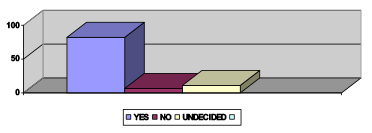
2. Do you support the Republic of Macedonia's accession to NATO?
- YES 71%
- NO 8%
- UNDECIDED 21%
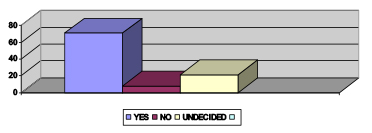
3. Do you regard the Republic of Greece as a friendly country?
- YES 41%
- NO 33%
- UNDECIDED 26%
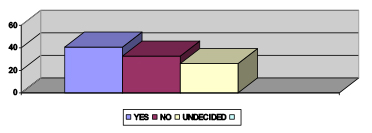
4. Do you support the attempts undertaken by Prime Minister Zoran Zaev and the government of the Republic of Macedonia to resolve the name dispute with Greece?
- YES 63%
- NO 11%
- UNDECIDED 26%
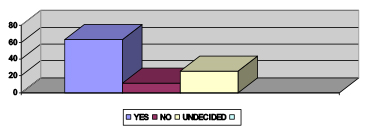
5. How would you assess the work of the new government of the Republic of Macedonia led by Prime Minister Zoran Zaev?
- POSITIVELY 59%
- NEGATIVELY 25%
- UNDECIDED 16%
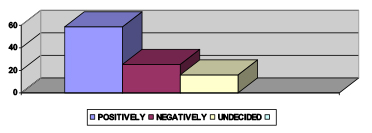
6. How would you assess the activities and efforts of the President of the Republic of Macedonia Dr. Gjorge Ivanov?
- POSITIVELY 14%
- NEGATIVELY 70%
- UNDECIDED 16%
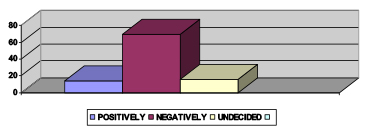
7. Do you support the work shown so far by the Office of the Special Public Prosecutor (SJO) led by the chief public prosecutor Katica Janeva?
- YES 78%
- NO 14%
- UNDECIDED 8%
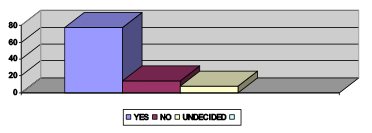
8. Do you think Prime Minister Zoran Zaev should carry out the reconstruction of the present government of the Republic of Macedonia?
- YES 58%
- NO 24%
- UNDECIDED 18%
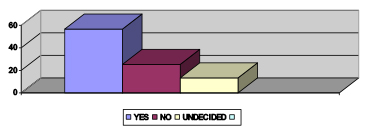
9. Do you support the adoption of the law on the use of the Albanian language and the languages of ethnic minorities in the Republic of Macedonia?
- YES 57%
- NO 28%
- UNDECIDED 13%
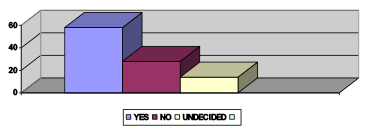
10. Are you as the citizen of Macedonia optimistic about the future?
- YES 66%
- NO 24%
- UNDECIDED 10%
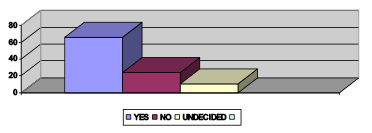
Ljubljana, 15 March 2018